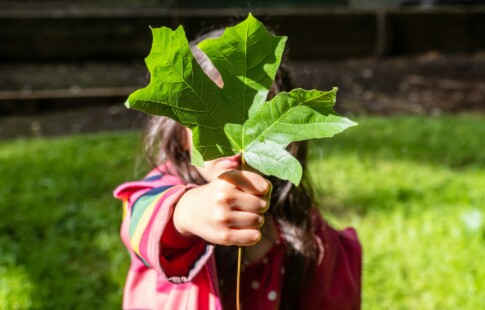
Bracelets, Beer, and Bathrooms: How Can Music Festivals Be Sustainable?
We are reader-supported. When you buy through links on our site, we may earn affiliate commission.
Despite summer being connoted with the festival season, every month of the year has the possibility of a raucous good time in the live music scene. The popularity of attending concerts and festivals has only increased post-Covid-19. This luxury hobby is an escape and joy for many, but there are environmental consequences associated with these deceptively innocent good times. So, how can music festivals be sustainable so music enjoyers can attend free of guilt?

Ditching Single-Use Plastics
Research from the U.K. in 2019 proved music festivals were responsible for 23,500 tons of trash annually. From food trucks to beer cups, single-use items literally and figuratively litter festival grounds at every event. Sometimes they make it into recycling bins, but most of the time they end up on the ground, blown away by the wind or kicked around by naive concert-goers. While it is not feasible to give every attendee a glass plate and handwash it for every meal, there are ways around this hurdle.
The first option is a reusable kitchenware system with a return program. Water refill stations are becoming more common, so these facilities could also support cup, plate, and cutlery returns to be mass washed at a third-party for reuse at different events. This requires partnering with green caterers and food trucks committed to sustainability.
The second option is biodegradable kitchenware. This only works if the festival has composting infrastructure in place so the items head to a suitable environment to undergo anaerobic digestion. Alternatively, the item could biodegrade without being a composting environment, but it must do so quickly for it to not litter waterways to be dangerous to wildlife. How can music festivals be sustainable if it doesn’t minimize its trash first?
Improving Waste Management
Most festivals rely on landfill as the default for event waste. The cleanup crew knows all the confetti, beer cans, plastic hand sanitizers, wristbands, and misplaced koozies will go to a municipal dump site. This mentality must change. It starts with instituting rules and better receptacles. Consider how much venues would benefit from banning plastic bottles and bags.
Much like there is a need for composting infrastructure, there is a need for enhanced waste management fixtures altogether. Consistent disposal schedules are critical to prevent overflows. Not only should there be bins and services for recycling, food waste, takebacks, refills, and landfill waste, there should be clear communication. Festival goers and employees need to be able to have the same degree of understanding where everything goes in order for these programs to be successful.
Events should consider emailing visitors weeks beforehand on how the waste plan works so attendees and campers can pack and plan accordingly. When Coachella makes 107 tons of trash daily, it gets you thinking about what more people could do.

Curbing High-Emissions Logistics
How can music festivals be sustainable before the event even begins? Most of the impact of a festival comes from planning, setup, and transportation. Logistics, procurement and putting up all the stages and lights are just a few of the background operations making a massive impact on the live music industry. Teams must engage in these procedural changes to make the backend of their production more eco-friendly:
- Optimize fleet routes to use less fuel or transition to electrification
- Protect environments before setting up stages to prevent damage
- Choose venues with environmental consults to ensure noise pollution doesn’t impact local species
- Opt for low-energy or renewable lighting
- Source ethically made electronics
- Design a lineup of musical artists who care about the planet and advocate for eco-friendly concerts
- Install temporary bathrooms with sustainable waste disposal
- Use electronic tickets and reusable entry bracelets to minimize paper and plastic waste
- Design eco-friendly merch made from sustainable companies with ethical materials
Additionally, sustainable public transportation near the venue is a must for handling population influx. If people must rely on gas-guzzling cars, then the area will ooze with air pollution and unnecessary emissions.
Considering Water Usage
Water waste is a monumental issue at music festivals. Attendees need to stay hydrated to stay safe. Meanwhile, vendors need tons of water, misting fans waste tons of it, and the bathroom facilities need some kind of supply. Without considerate toilet solutions, a repeat of Glastonbury’s 2014 embarrassment will repeat. Festivals can have low-flow fixtures, solar water pumps, and greywater recycling infrastructure to reduce impact.
Cutting Carbon in Food and Drink
Alcohol consumption is embedded into the festival culture. However, it has an unfortunately high carbon footprint. Offering numerous non-alcoholic beverages that are as unique and refreshing as cocktails will make it more enticing for someone to pick the lower-emission beverage. Additionally, having fewer beverage spills into the soil helps the ground stay as strong as it can amidst all the foot traffic it endures.
Food waste is not much better, but there are plenty of ways to fix this. Implementing composting is one of the most rewarding ways, as hinted by expanded waste management infrastructure. However, offering as many plant-based meals as possible will also minimize the overall impact of the festival’s food. The venue could encourage smaller portions to make sure excess food doesn’t immediately hit the trash.
Refining Venue Placement
No habitat should have to be deforested or destroyed to erect a music festival. Festival site selection must be careful, and it should maintain these qualities to make sure it is as thoughtful as possible:
- Avoids ecologically sensitive areas
- Does not encroach on native lands
- Curbs noise and light pollution
- Uses already existing infrastructure
Boosting Education
Music festivals are responsible for communicating eco-conscious priorities to ticket buyers. If they have always attended events in a particular way, give them the time and resources to adapt to new standards. Environmentally aware attendees can communicate their desire for increased awareness and education to directorial boards and stakeholders, too. Ensure education includes only what is in the visitor’s control. This should include:
- Carpooling or taking less impactful forms of transit
- Neglecting to support fast fashion for buying festival outfits
- Bringing reusable water bottles
- Using virtual tickets
- Wearing environmentally friendly sunscreen
- Smoking as little as possible
Guests can also look into Leave No Trace principles, especially if camping.

How Can Music Festivals Be Sustainable?
The music doesn’t sound as good at the festival if attendees know they are leaving the planet worse off than before they got there. The festival industry and live music will only continue to grow, so the sector should do as much as they can immediately to reduce their impacts as possible. Additionally, they can collaborate with attendees by educating them. If you are a festival goer, implement one eco-friendly action for your next vacation to leave less of a trace — no matter how hard you party.
Share on
Like what you read? Join other Environment.co readers!
Get the latest updates on our planet by subscribing to the Environment.co newsletter!
About the author

Jane Marsh
Starting from an early age, Jane Marsh loved all animals and became a budding environmentalist. Now, Jane works as the Editor-in-Chief of Environment.co where she covers topics related to climate policy, renewable energy, the food industry, and more.





